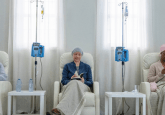Alliance for Regenerative Medicine seeks ‘fit-for-purpose methodologies’ for Joint Clinical Assessment in Europe to ensure patient access to novel ATMPs

The Alliance for Regenerative Medicine, EveryLife Foundation for Rare Diseases, and Rare Diseases International have issued a press release calling for changes to the EU’s Joint Clinical Assessment methodologies to ensure patients are not denied access to the next generation of advanced therapy medicinal products.
New analysis by the Alliance for Regenerative Medicine shows nearly 90% of the advanced therapy medicinal products (ATMPs) currently authorized in the EU would never have been authorized using the proposed the EU joint clinical assessment methodologies. Of 18 ATMPs reviewed by ARM, 16 would have been rejected due to lack of evidence showing long-term durability or because they were not studied in randomized controlled trials (RCTs). This means that many treatments, such as the gene therapies Zolgensma for spinal muscular atrophy, Libmeldy for metachromatic leukodystrophy and Upstaza for aromatic l-amino acid decarboxylase deficiency, would never have been approved. JCA, therefore, “will fail to deliver the next generation of transformative therapies to rare disease patients,” which would, “question the value of the JCA process.”
As explained in our recent Expert Insights interview on Joint Clinical Assessment in Europe, this process, which begins in January 2025, aims to streamline the assessment process of new medical treatments and devices across Europe. The JCA will be implemented by Member State Coordination Group on HTA (HTACG) using methodologies proposed by the EUnetHTA-21 consortium. These include requiring evidence from ‘gold standard’ RCTs. Yet, as noted in ARM’s position paper, “given the rarity of ATMP target diseases, the high unmet need in these conditions, and the significant clinical effect of ATMPs, it is often not appropriate or ethical to set up controlled trials for these types of therapies.” Instead, ARM is calling for adaptions of HTA methodologies with more consideration given to single-arm trials as well as real-world evidence (RWE).
“Comparing single-arm results to a synthetic comparator from a robust disease registry can provide evidence of added benefit, while gathering RWE post-approval can provide evidence of durability not available at the time of approval.”
ARM cited innovative approaches taken by other national HTA bodies, such as Haute Autorité de Santé (HAS) in France and the Gemeinsamer Bundesausschuss (G-BA) in Germany and NICE in the UK, who have all considered alternative methods when reviewing ATMPs, such as indirect treatment comparisons instead of RCTs.
Tim Hunt, CEO of ARM explained, “There is a clear risk that rare disease patients in the EU – many of whom face death or serious disability – will not benefit from the next generation of transformative cell and gene therapies under the JCA methodologies proposed by the EUnetHTA-21 consortium,” he continued, “We urge the HTA Coordination Group to develop a modernized framework for the JCA rather than defaulting to conservative approaches that were built for yesterday’s pharmaceuticals.”
In their position paper, ARM makes five specific recommendations when assessing ATMPs:
- As part of the JCA process, it will be critical for the JCA Coordination Group to identify sources of uncertainty and ways to address these beyond the pivotal trial
- EU-wide guidelines for RWE generation should be clear and address country-level dynamics and use in EU JCA
- The guidelines on direct and indirect comparisons should provide clear guidance on appropriate methods and relevant sources when the evidence of a new therapy comes from a single-arm study
- The future JCAs should take a pragmatic approach in relation to uncertainty, with conditional assumptions to be updated when new data has been generated
- There should be continued collaboration with ATMP developers from the time of Joint Scientific Consultations (JSC) to the end of the JCA process
Want regular updates on the latest real-world evidence news straight to your inbox? Become a member on The Evidence Base® today>>>






